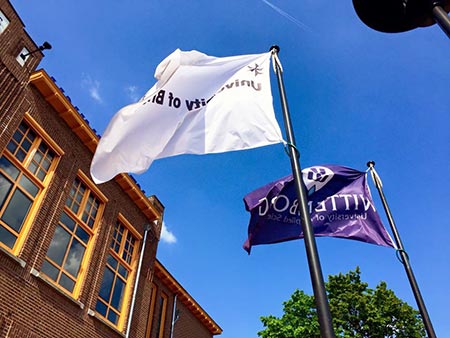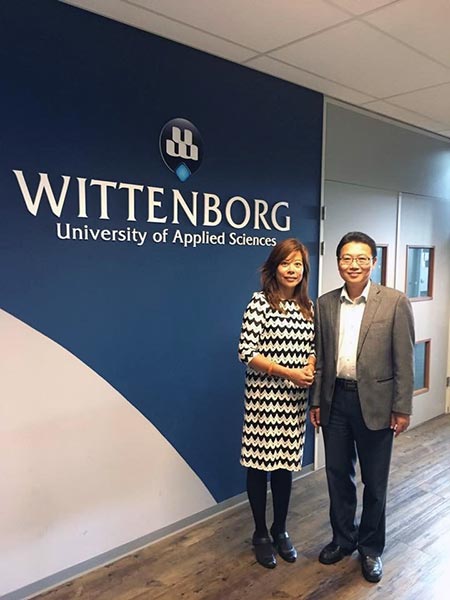Wittenborg Online News!
Brexit woes, or opportunities?
Brexit woes, or opportunities?
http://www.wittenborg.eu/brexit-woes-or-opportunities.htm
 In an article back in June 2016, THE reported on UK university vice-chancellors fearing a fall in 'continental' recruitment, stating that 'at some universities nearly one in five students is from an EU country'. The main issue is, of course, access to the student loans system - the UK having the highest public university fees of around 9000 pounds per academic year. At present, EU students are treated like their UK counterparts and awarded the loan automatically, unless they decline, which few do. After 'brexit' they would most probably have to pay the fee themselves, and may even have to pay general international student fees which are considerably higher still.
In an article back in June 2016, THE reported on UK university vice-chancellors fearing a fall in 'continental' recruitment, stating that 'at some universities nearly one in five students is from an EU country'. The main issue is, of course, access to the student loans system - the UK having the highest public university fees of around 9000 pounds per academic year. At present, EU students are treated like their UK counterparts and awarded the loan automatically, unless they decline, which few do. After 'brexit' they would most probably have to pay the fee themselves, and may even have to pay general international student fees which are considerably higher still.
This presents an opportunity to universities in EU countries such as the Netherlands that has so many degree programmes offered in English, and where public university fees are much lower, and even the private sector is often cheaper than the UK. As a privately funded institute, Wittenborg University of Applied Sciences (WUAS) even offers a double degree with its publicly funded UK counterpart, allowing EU students to gain a Dutch and a UK bachelor's for almost half the fees charged for the same degree in the UK.
Another theme is transnational education, where universities export their programmes abroad, generally in partnership with other institutes, such as is the case between WUAS and the University of Brighton. Some UK universities have actually taken transnational education a step further, by actually building a 'campus' abroad, in places such as Dubai, or China.
In July, THE published an article 'After we leave the EU, will UK universities set up campuses on the continent?' The article concluded that there might be more 'pop-up' campuses - UK universities making use of the facilities of another institute on the continent, but that investment in bricks and mortar would probably be investments that wouldn't receive approval'.
WUAS and the University of Brighton have been offering joint delivered bachelor's and master's programmes in the Netherlands since 2011, and students on these programmes are registered at both institutes and genuinely feel they are part of a unique relationship between the two higher education providers. The University of Brighton signs and flags hang and fly next to those of Wittenborg at its campus locations in Apeldoorn and Amsterdam.

Interestingly, THE also reported in July, a prediction by the former UK universities and science minister, Lord Willetts on the possibility of Chinese universities setting up branch campuses in the UK. It seems that some Chinese universities are looking at establishing themselves oversees, possibly with local education partners. Willetts said that the UK should do everything they could to welcome these new higher education providers, and this in a time when the government is planning to open up the university provision status to new providers. A bill is currently proceeding through parliament to make this possible.
However, EU countries - and the Netherlands in particular - has a great opportunity to welcome more oversees institutes to 'set-up shop' and establish a branch campus, giving their students a guaranteed access to a freedom of movement across the EU, - something that the UK, can't do now and will not be able to do in the future.
Earlier this month, Wittenborg was visited by the Deputy Dean from Nanjing University, China, who was shown around the Apeldoorn campus by CEO Maggie Feng.
Welcome to Holland!
WUP 20/8/2016
by James Wittenborg
©WUAS Press
660 words